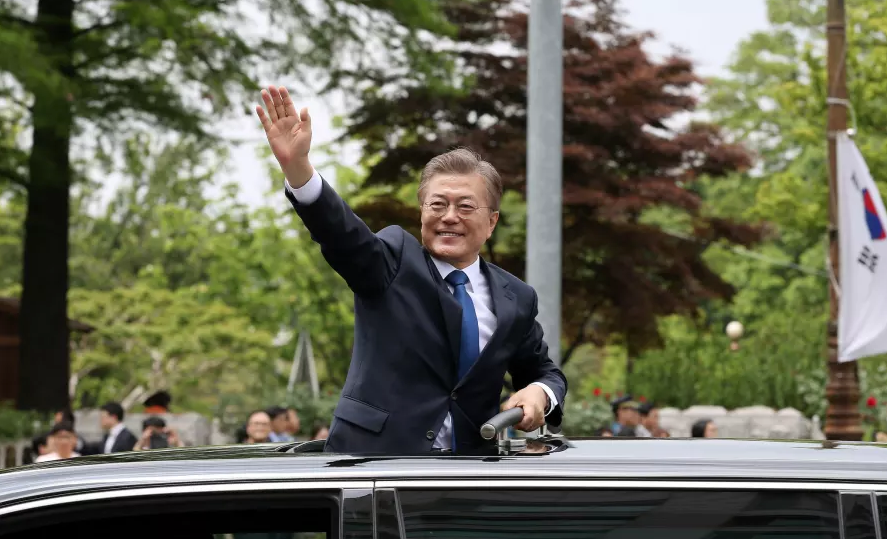Why South Korea's fresh start is good news for Australian business
After months of political scandal that saw South Korea’s former president impeached, a newly elected leader could mean big opportunities for Australia

As headline writers busied themselves with the federal budget, Prime Minister Turnbull’s visit to the US, and the election of France’s new President, an international development of critical importance to Australia went largely unnoticed.
South Korea, Australia’s fourth largest trading partner, went to the polls on 9 May. Triggered by the impeachment in March of the incumbent President Park Geun-hye, over her alleged role in a scandal linked to South Korea’s powerful family firms – known as chaebols – the stakes were high.
In the 1970s and 1980s, the South Korean government channelled capital into these chaebols, which also held extended trade preferences and monopoly rights over many key industries. This enabled the chaebols to grow into massive business empires with brands that are world leaders in their fields.
Today’s chaebols include the likes of the Hyundai and Samsung groups of companies, and are global household names.
After a record voter turnout, the landslide victory for former human rights lawyer and left-leaning Democratic candidate, Moon Jae-in, suggests changes are afoot in South Korea’s established business landscape.
Here are three reasons why Australian business should sit up and take note.
HISTORY IN THE MAKING
The election was effectively a vote against the South Korean establishment and the government’s role in privileging the powerful few over the people.
Not unlike the voter backlash we have seen against the establishment in Washington and London, Mr Moon’s campaign struck a chord with voters who were disillusioned with the country’s corporate elite.
His election heralds a new political order that is likely to upend the business status quo. International investors and local start-ups alike are hopeful it will spark long-awaited reform of the chaebols and systemic crony capitalism. Such reform would help level the playing field and open up new opportunities for local and foreign companies alike.
A STABLE AND EXCEPTIONALLY WELL-ROUNDED ECONOMIC PARTNER
South Korea’s election also matters to Australia in simple economic terms.
After China, the US and Japan, South Korea is our next largest trading partner. Bilateral trade accounts for around 5 per cent – that’s $34 billion dollars – of Australia’s international trade and is growing steadily. The KAFTA – Australia’s bilateral trade agreement with Korea – has led to lower tariffs that have already delivered benefits to Australian exporters, especially premium agricultural producers.
South Korean state-owned enterprises and chaebols have been investing in Australia for a long time, making a critical number of investments across resources and energy, broadly on par with Japanese, US and Chinese investments. But unlike any of Australia’s other investment partners, South Korean investments also often include consortiums that bring together state-owned enterprises and private sector players jointly bidding together.
And this investment continues to grow and diversify – from around $1 billion a decade ago, to more than $23 billion today. Korean steel maker POSCO’s significant stake in the $6 billion iron ore mine at Roy Hill in Western Australia is South Korea’s largest overseas construction project. Importantly, these investments bring not just financing, but knowledge-transfer in engineering, construction and technical know-how. Samsung C&T, for example, is fast becoming an important provider of engineering and construction services throughout Australia.
The relationship is also gradually expanding beyond resources, into areas like tourism, real estate and infrastructure. Korea’s $400 billion-plus sovereign pension fund, the National Pension Service (NPS), has increased its Australian holdings, and the state-owned Korean Development Bank opened an Australian office in Sydney in late 2015 to manage its growing investment portfolio.
Mr Moon’s election is good news for Australian business as we can continue to expect financially sound South Korean chaebols as partners in Australian projects, but only with strengthened corporate governance at a group level.
AN EXCEPTIONAL INNOVATION ECOSYSTEM
In Australia we love the innovation systems of Silicon Valley, Israel and London, but we can learn an extraordinary amount from South Korea’s innovation ecosystem.
First, South Korean companies are amongst the biggest spenders on research and development in the world. This includes not just the chaebols like Samsung, but organizations like Daum Communications and Naver, which commands one of the highest innovation premiums in the world in its market capitalisation.
Second, South Korea also has amongst the highest rates of collaboration between business and research institutions. This is quite simply a function of a large number of researchers being employed by businesses. Australia’s Chief Scientist Alan Finkel has been calling on our businesses to hire more researchers; we only need to learn from South Korea’s example.
Third, South Korea has some significant unicorns, that is $1 billion dollar-plus start up companies, including the likes of Coupang, Yello Mobile and Kakao Talk. With the growing emphasis on the start-up economy, the financial-tech, lifestyle, healthcare, and consumer goods sectors are thriving amid growing funding rounds.
Finally, South Korea is focusing its innovation policy not just on greater jobs growth and economic performance, but through its ‘Government 3.0’ agenda to create a “happier society”. Linking innovation performance to a happiness index is the ultimate goal of South Korean policy making.
In the near term, navigating regional complexities in the Korean peninsula and balancing geo-strategic interests with the US and China will occupy the Moon administration.
However, Australia should look for opportunities to engage early with the new administration and articulate our two countries’ highly complementary interests.
By Mukund Narayanamurti, CEO Asialink Business
Asialink Business is supported by the Commonwealth Government Department of Industry, Innovation and Science, the University of Melbourne and the Myer Foundation
This article was first published on Pursuit, 21 May 2017